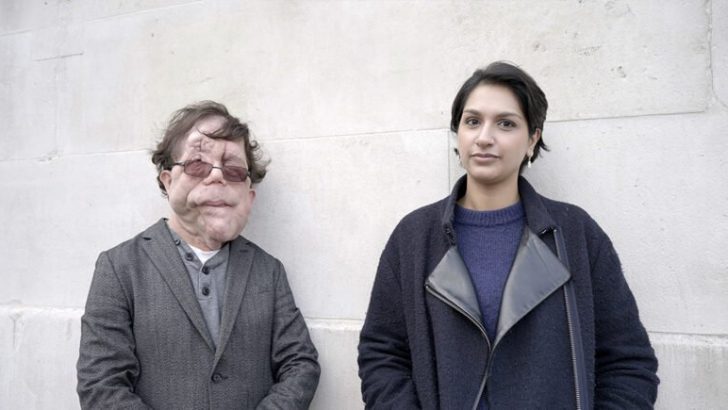A recurring line from the Twilight Zone movie came back to me last week: “You want to see something really scary?”
Eugenics: Science’s Greatest Scandal (BBC4) over the last two Thursdays made for very scary viewing. We’re familiar with eugenics, pure race theory and the like from Nazi ideology, but the programmes showed that the seeds of it began in Britain.
Journalist Angela Saini and Adam Pearson were in no doubt about the ugliness and evil consequences of this patronising an arrogant ideology, where the individual was sacrificed, ostensibly for the good of society and the gene pool.
We heard the ideology described as “bizarre”, “creepy”, “this terrible idea”, “malicious and terrifying”. The language of the eugenicists was repulsive, with quotes like “imbecile girl”, “mentally defective family”, “parasitic race”, “superior stocks” and “racial hygiene”.
Prominent figures were in the dock – apparently Churchill was a fan of eugenics, at least before World War II, and several prominent scientists developed and promoted it, even though it took the Nazis to follow it to the conclusion that the weak, infirm and disabled should be experimented on and murdered.
Likewise with Marie Stopes (she of the clinics) – she promoted birth control for the poor so that they wouldn’t reproduce so much. I was glad to see that the Catholic Church and some MPs successfully campaigned to halt forced sterilisation in Britain in the early 20th Century.
It’s easy to see the moral failures of the past and be smug about it, when maybe we should just be glad we’ve moved on and learned lessons, but the programme suggested that maybe we haven’t moved on.
At the start of last week’s episode we saw protests from the ‘Don’t Screen Us Out’ campaign – against the aborting of babies because they have Downs syndrome. In fact abortion had been used in Britain in the past when efforts to stop the ‘mentally defective’ from procreating didn’t work. And it definitely rang a bell when I heard of two doctors casually certifying a woman, Mabel Cooper, as unfit and incarcerating her into an institution – unbelievably in 1957.
Eventually she got out, received an honorary degree and ran a disability rights campaign.
That latest episode dealt with more contemporary manifestations of eugenic ideology, for example the worrying news that it continued after the second world war and fed into forced sterilisations, apartheid and far-right ideology (do media people ever worry about the far left?).
The eugenicist attitudes of birth control advocate Margaret Sanger (she of Planned Parenthood) was also outlined. Fears were also expressed about modern scientific developments, especially non-invasive screening of babies in the womb – leading to the destruction of most unborn babies diagnosed with Downs syndrome (90% in the UK we were told).
Relevance
Finally, compliments to RTÉ and EWTN for live coverage of the canonisation ceremony for Cardinal Newman. It was quite an event, with significant relevance for Ireland, and also it wasn’t until the live coverage that I got a handle on the four holy women that were canonised as well.
The Leap of Faith (RTÉ Radio 1) was early into the breach two Fridays ago with an informative interview with Newman biographer Fr Dermot Mansfield. He described the saint as a man of integrity, truth, humanity and prayer.
Last weekend’s Sunday programme on BBC Radio 4 featured a thorough and very positive exploration of Newman’s life and influence. They reported one priest claiming that Newman would have been a ‘remainer’ in relation to Brexit – a rather large and divisive assumption!
This was followed by a dignified service from the Birmingham Oratory, where Newman ministered. This newspaper’s Managing Editor editor Michael Kelly contributed to Sunday Sequence (BBC Radio Ulster), pointing out how the gathering in Rome illustrated the universality of the Church, stressing how Newman can be a unifying figure in a Church with divisions and drawing attention to the “hastily arranged visit”of an Irish Government representative to the event.
On Sunday Morning Live (BBC1) Bishop John Arnold of Salford emphasised how Newman was both intellectual and pastoral in his approach. Later on Songs of Praise (BBC One, Sunday) Rev. Kate Bottley visited Birmingham Oratory where we got a look at Newman’s study, left as it was when he died. Fr Anton Guziel pointed out how Neman ministered to the rich and the very poor.
I hope all the coverage inspires more people to look into the saint’s writings.
****
Pick of the Week
Mass
RTÉ1, Sunday, October 20, 11 am
Mass for Mission Sunday with music from the choir of the National Centre for Liturgy, St Patrick’s College, Maynooth. Co-celebrants are Fr Frank Conlisk and Fr Martin Smith.
Father Delaney, Silent Witness
RTÉ1, Thursday, October 24, 10.15 pm
Joe Duffy narrates the story of a Dublin priest and amateur filmmaker, Fr Jack Delaney, who captured all walks of Irish life in the days before television.
Gardeners’ World
BBC2, Friday, October 25, 8 am
This special programme takes a close look at the role that plants and gardening play in mental and physical wellbeing, exploring the idea that gardening is good for you.


 Brendan O’Regan
Brendan O’Regan Angela Saini and Adam Pearson
Photo: BBC/Unilad
Angela Saini and Adam Pearson
Photo: BBC/Unilad 